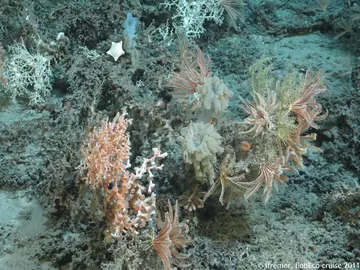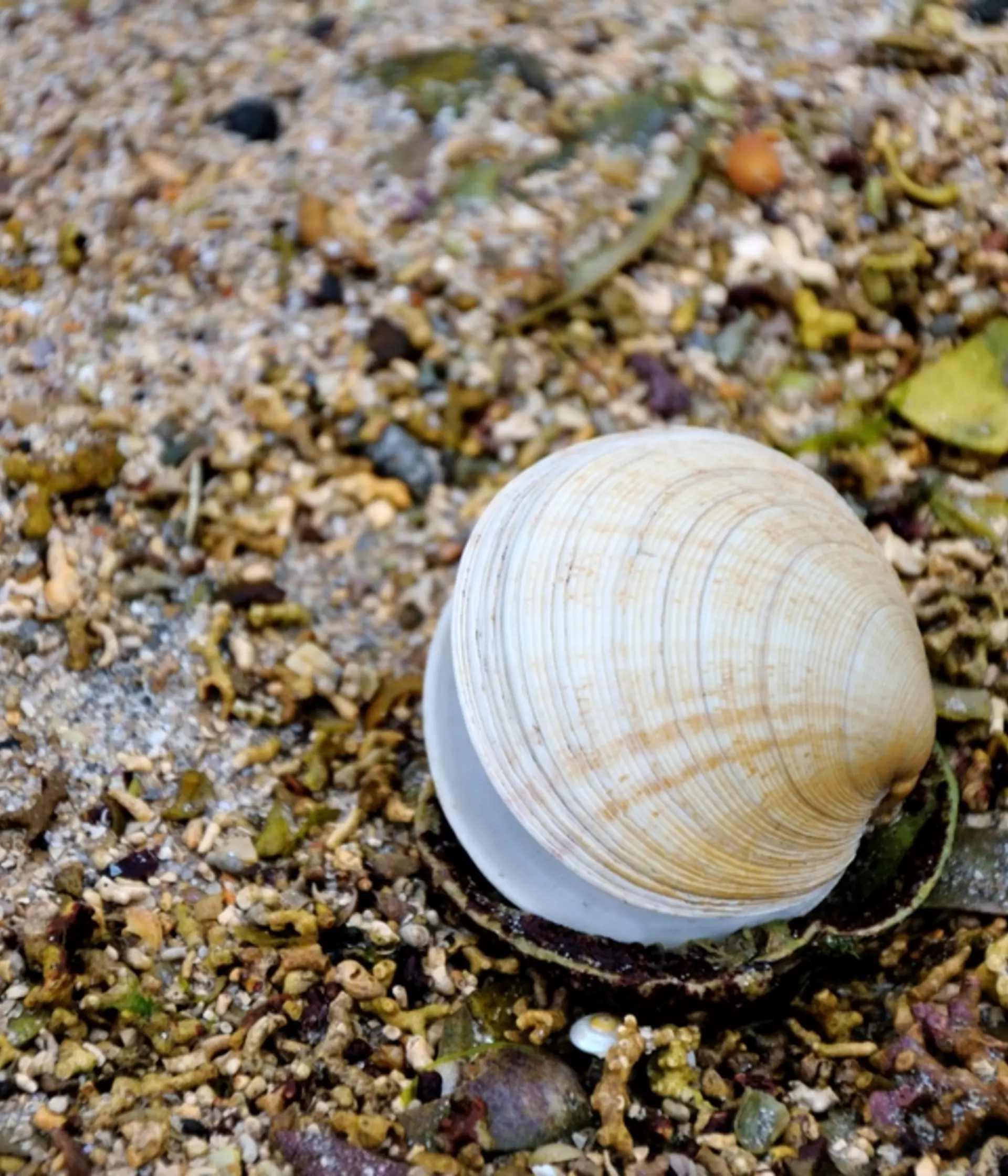
Chris Yesson
Research Fellow
By Chris Yesson, Bridget Sparrow-Scinocca & Emme Broad
On 28 March 2021 a marine management organisation consultation into proposed fishing restrictions at four areas around the English coast closed. These proposed banning demersal (seabed) trawling at two marine conservation zones and two special areas of conservation. Marine researchers and conservationists at ZSL submitted a response to the consultation supporting the proposals. This blog outlines why we support these proposals.
Trawling the seabed can be environmentally damaging
Demersal trawling involves dragging nets along the seabed to catch things like fish and shrimp. This can be an important food and income source for coastal communities. You can get a sense of what trawling is like by playing our Tricky Trawling game. However, trawling the seabed in some places can be very damaging by disrupting the natural state and productivity of the seabed habitat, which has been likened to forest clearcutting. Many seabed habitats (like a coral garden we recently described in Greenland) can be severely damaged by trawling and some places may take many decades or centuries to recover! Trawling has also been shown to make a significant contribution to global carbon emissions, so there are many reasons why we should think carefully about where we trawl.
We should actually protect our marine protected areas
We currently have 76 offshore Marine Protected Areas, which all together cover 36 % of UK waters. Many of these protected areas are awarded a conservation status based on isolated seabed features and habitats including submerged sandbanks, deep sea coral reefs and habitats that support vulnerable species.
It surprises many to hear that places designated Marine Protected Areas or Special Areas of Conservation actually allow widespread fishing to occur. Indeed a recent study suggested that more fishing goes on inside MPAs than outside. This is one reason why the UK government’s Benyon report recommended the introduction of “Highly Protected Marine Areas” that significantly restrict fishing. We know that when we do manage to introduce fully protected areas, this can have a positive impact on both the environment and local fisheries.
The Canyons Marine Conservation Zone
ZSL researchers have been examining footage of the seabed in one of these four areas, the Canyons Marine Conservation Zone, in partnership with CEFAS & JNCC. This conservation area is unique for UK waters as it contains two large canyons, reaching depths of ~2000 m. It is the only MPA in England that is known to contain cold-water coral reefs. The steep sloping cliff faces of these canyons descending from the shelf break at 200 m create distinct habitats of mud, sand and rock at different depths. This allows for a large range of diverse and productive ecosystems to thrive.
For this project we reviewed 47 video transects covering 43km, and spanning depths from 200-1700m. We found the majority of transects contained potential vulnerable marine ecosystems (VMEs). These included: anemone fields, sea pen fields, bryozoa beds, aggregations of stalked crinoids and a variety of coral garden habitats. We believe the variety and spatial extent of these habitats extends beyond the current knowledge outlined in the MMO consultation report.
This report states that this area is currently being fished using a variety of gear including bottom trawling gear and long lines. These methods can potentially damage or destroy the coral gardens, sea-pen communities and cold-water corals present here. Given that we don’t know the full extent of these habitats, it is imperative that we employ the precautionary principle, and protect the entire Canyons MCZ, unless and until we can demonstrate that proposed activities will cause no harm.

Let’s support the protection of wildlife
Marine Protected Areas are designed to conserve marine life by restoring marine ecosystem integrity, which is currently undermined by the disturbance caused by trawling activity.
ZSL supports the introduction of the proposed trawling bans. We believe this is a necessary step in protecting our vulnerable habitats and committing to restore the health of our oceans.
